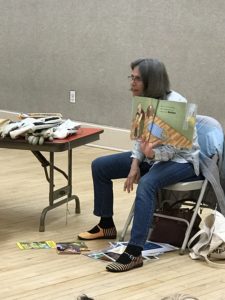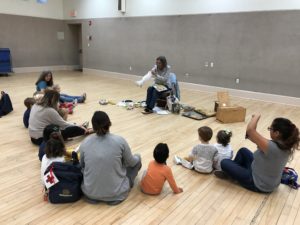

Today, beekeeper Karin King came to share her knowledge of honey bees with our children. She brought some of the special equipment she uses when caring for the bees, including her gloves and veiled hat. She also brought a smoker and some honey combs. She even brought some of the honey she harvested for the children to taste.
We learned from Karin that wild honey bees have become extinct in Connecticut, thus making beekeeping essential for reestablishing lost colonies of bees. One very simple way we can help bees is by allowing dandelions to grow and not maintaining perfectly manicured lawns. Karin says that “Probably the single most valuable early spring wildflower is the dandelion. If a hive of bees survives the winter, beekeepers know the bees will be safe from starvation if they can stay alive until dandelions bloom.”
We also learned that honey bees are different from wasps, yellow jackets, hornets, and bumble bees. Honey bees do not intentionally sting anyone, unless they feel threatened. In fact, a honey bee will die after it stings.
Our Nature Classroom hosts many pollinating plants that are attractive to honey bees. We also have two apple trees planted in the Nature Classroom that depend on the honey bees in the process to bear fruit. It is important that children learn about the critical role that honey bees have in the production of plants, trees, and our ecosystem.
